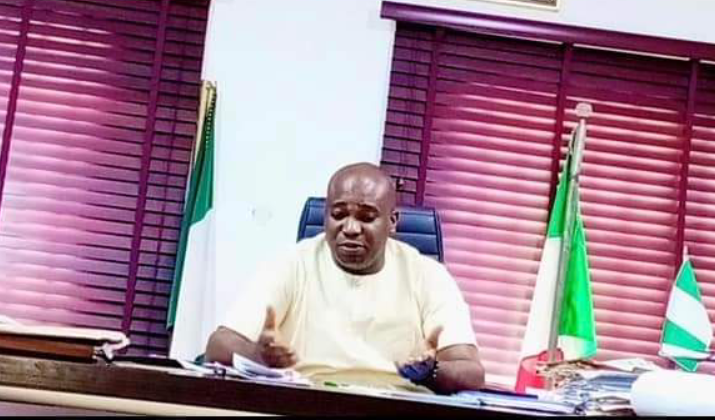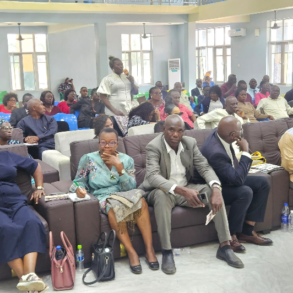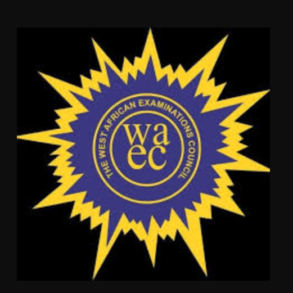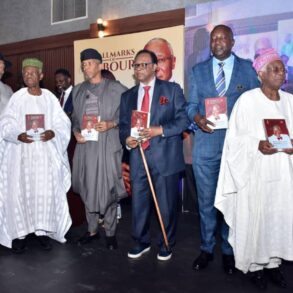By TONY EKE –
The local government system is fraught with issues which inhibit delivery of good governance at the grassroots level. The numerous impediments revolve around financial incapacitation, limited autonomy, entrenched opaque process of selecting council helmsmen, and overbearing control by the sub-national government to which the former is largely gifted as an appendage by the 1999 Constitution, as amended. The cumulative effects of these constraints may have informed the derisive perception of the local council as merely existing in name and the only time a semblance of activities takes place is the monthly convergence of council officials at the headquarters to share allocations from the Federation Account.
Much of the criticisms of the local government system therefore encapsulates agitations for reformation of the dysfunctional Nigerian system in order to reposition the grassroots for effective service delivery. Citizens have the inalienable rights to hold public office holders to account and to raise issues bordering on alleged poor application of resources meant to advance the progress of that entity. After all, the biblical exhortation “to whom much is given, much is required” presupposes that receivers of tangible resources or the like should manage same in a commendable commensurate manner. Expectedly, no right-thinking person will rail against a council boss who utilises public funds at his disposal for the good of the local government and its people.
For several months now, I have had fitful glimpses of good performance of few local government councils in Delta State. In the Class of 2021 Council Chairmen, Barrister Possible C.S. Ajede of Ukwuani Local Government is credited by his people with a number of infrastructure dotting the physical landscape of his council, but what struck me particularly was his award of scholarship to 100 indigenous students of Ukwuani local government. There was that awesome feeling, a high degree of elation that enveloped me last week as I watched television footages of the glowing faces of young men and women as they walked up to the dais to be presented with a cheque of N100, 000 each, with additional N50,000 each given to the winners of the first, second, and third positions.
It was a bit difficult hazarding a guess while ruminating on the possible influences on the young man, but it suffices that his choice of an empowerment programme in the form of scholarship awards emblematises the values he holds dear as a public officer. It is all about the benevolent disposition of the initiator and his symbolic utilisation of the sum of Ten Million, one hundred and fifty thousand naira (N10,150,000) to impact the lives of a segment of his people. On the flip side, however, it is a little sum a reckless executive office holder reaping bountifully from Nigeria’s prebendal political system could spend on frivolities in a day!
This is my local government of origin and, within the confines of living memory, all but one of his predecessors whose activities I had followed with relative inquisition in the bygone years did not initiate a similar programme of beneficial import to the category of students under discourse. The only exception was Ogbuefi Eric Oboduku-Anigala, who, during his three- year tenure of 1999-2002, gave financial assistance to Ukwuani students at the Nigeria Law School while he built the Council Secretariat previously left at the damp proof course(DPC) level by the pioneer chairman, Chief Frank Ishiekwene of blessed memory. Yet other chairmen that didn’t embark on scholarship awards however prioritised other areas they deemed most pressing among the needs of their constituents at that time.
Ajede’s initiative is therefore a manifest variation of vision clearly nurtured over the years by empathy for the challenges of studentship in tertiary institutions in today’s Nigeria. The intervention promoted inclusivity of the constituent nine communities where beneficiaries were drawn from in the local government. At some other time of a repulsive past, one of the former council chairmen who was rascally and discriminatory in policy conception and project execution would probably have chosen awardees only from his own axis of the local council and staged the award ceremony possibly at about 4am!
The beauty of the award lies with the amount given to each beneficiary. Despite the fact that our once-valued naira has been crippled and prostrated by devaluation, the gift of N100,000 to an indigent student or one on self-sponsorship is still hugely handsome at a time like this. Even for a lucky student from an average family, that amount is absolutely good enough to enrich his savings besides whatever sum he gets from his sponsors.
Unknown to Ajede, he has set a precedent in charting a new course of human capital development and its impact will reverberate beyond this season. As much as infrastructure development drives growth and development in any society, empowerment of the citizens holds so much prospect for the beneficiaries to attain their potential and invariably contribute to societal growth in many ways.








